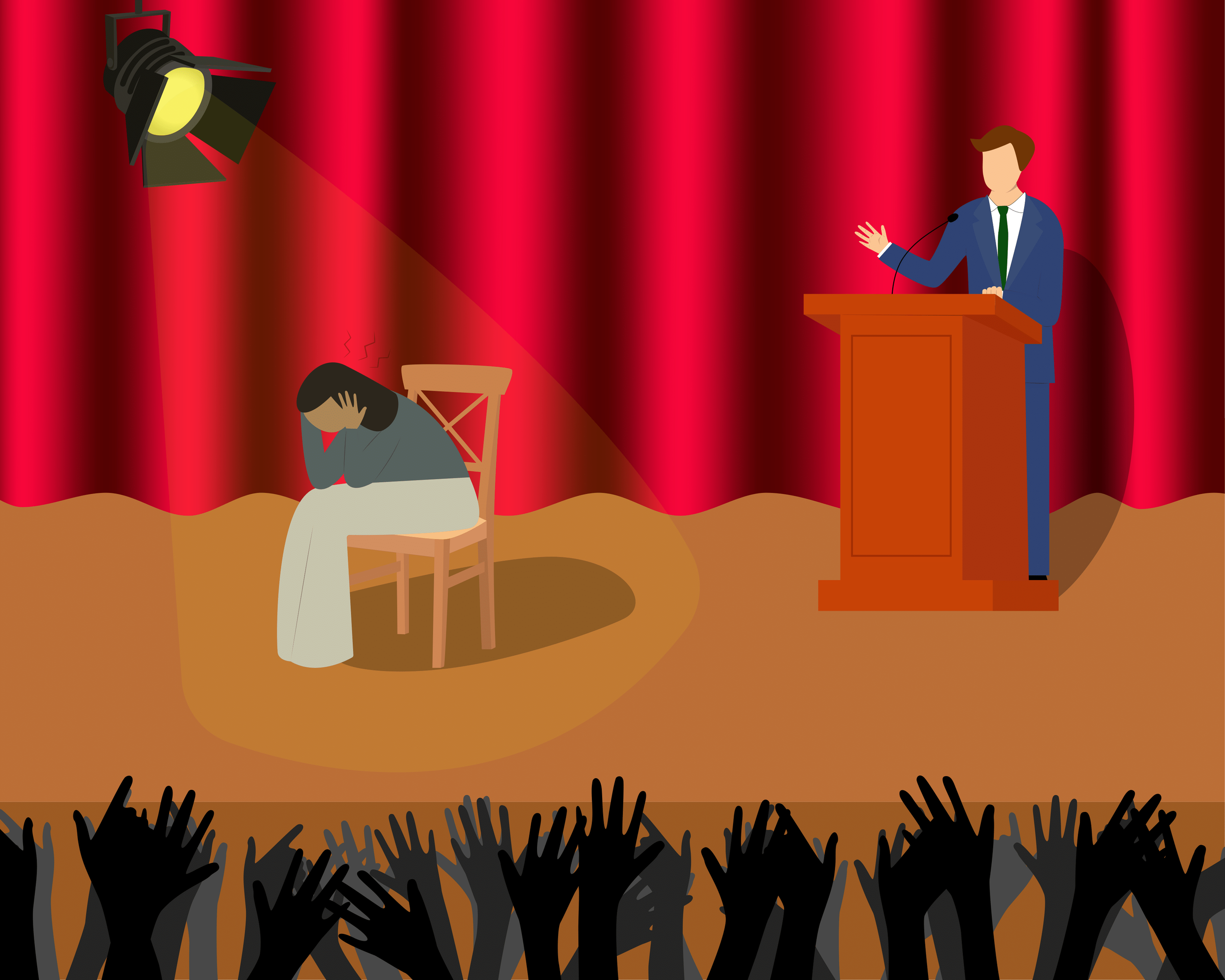The politicization of victims’ stories
Politicians have used victims' stories for their own good, but they ignore the negative impact on victims.Graphic by Sydney Mulford, Features Editor
Sydney Mulford, Features Editor
Lately, whenever I turn on the TV, ads start to play- this is nothing new, but the advertisements I see certainly are. When I was growing up, all the ads I saw on TV were about a new toy I wanted or a funny Progressive commercial. Now, whenever I turn on the TV, I see ads about the runoff election between Raphael Warnock and Herschel Walker. Yet, the only thing mentioned is how Walker held a gun to his wife's head and threatened to “blow her brains out.”
Hearing about victims’ stories has become the new normal for all of us, good or bad. The media, politicians, and television broadcast their stories daily. Regardless of the victims’ consent, their stories have become devices politicians use to further their agendas. Through this exploitation of victims’ stories, politicians and the media contribute to a never-ending cycle of political violence.
The World Health Organization defines political violence as the deliberate use of power and control to achieve a political goal. Politicians use these stories to put down opposing candidates or to influence citizens to vote for them; it is a way to make one person look like the better candidate and for the other to look malicious. One example is Warnock’s continual use of Walker's ex-wife's story. Warnock used this to suppress Walker and paint him in a negative light. Using the definition from above, this is an example of political violence. Acts of political violence hurt hundreds of people each year; we don't need to add victims of other attacks to the mix.
This abuse of victims’ stories is not only a political attack issue but one concerning their privacy as well. The U.S. Department of Justice states that a victim of a crime has the right for people to treat them with fairness and respect for their dignity and privacy. But when their stories become blasted all over the media, their right to privacy is no longer respected. When the Lewinsky-Clinton scandal broke out, the media used Monica Lewinsky’s story across all sorts of different platforms. It didn’t stop there; once the media started to promote her story, politicians started using her story for their own well-being. Victims have already gone through traumatic experiences; they are dealing with newfound stress and uprooting in their lives. These victims have a right to privacy, yet politicians still find ways to become intertwined in their lives.
However, just because politicians tend to misuse victims' stories, doesn't mean victims don't deserve to share their stories. The Victims' Rights Movement has started to become more popular in the United States. The purpose of the movement has been to comfort and advocate for victims. Rise is a group of leaders who started by advocating for survivors of sexual violence and now have passed over 60 laws. One example of their work is their display in New York, showing the outfits of 103 survivors of sexual assault. There are also stories alongside the clothes to empower those who read them. Rise has positively used victims' stories to show that clothing does not contribute to sexual assault.
However, instead of victims’ stories being used in such a positive manner, the media and politicians continue to exploit them for selfish and manipulative purposes. Victims' stories have become so politicized that it is hurting them and violating their right to privacy. When we add this to their already overwhelmed minds, it damages them more, mentally and physically. There are appropriate mediums to share victims’ stories through, but politics is not one of them. Instead, we can use victims' stories to help advocate for issues that they have experienced and encourage new policies to pass through Congress to combat these problems in society.


